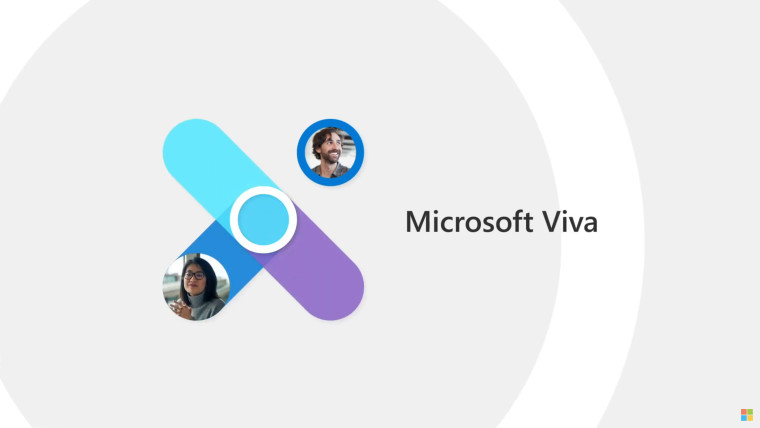A solution that we may never really need.
- Microsoft Viva is a platform that aims to digitally recreate the work environment down to the chatting around the water cooler which is Microsoft’s answer to the possibility of everyone being stuck at home for a long time to come.
- Fortunately, I think that the biological evidence of this disease points to a large reversion to normality within 12 to 18 months and hopefully much sooner.
- Microsoft Viva integrates Teams, Office 365 and many of Microsoft’s other digital work assets into a single user experience that Microsoft hopes will allow employees to better engage with their fellow workers as well as learn and expand their careers.
- The initial launch is split into 4 modules:
- First, Connections: which is a chat-like experience for internal communications which is likely to be aimed at replacing Slack.
- Second: Insights: which allows visibility into how a team is faring in terms of productivity and wellbeing in an attempt to bring better work/life balance as well as improve productivity.
- The problem with this, of course, is privacy and the scope for greater oversight of employees deemed to be not working as well as they might not prove very popular.
- Third, Learning: which aggregates learning and professional development resources from Microsoft and 3rd parties in a single, easy to access location.
- Fourth: Topics: which is an AI-driven automated recommendation system that surfaces relevant topic cards based on the activities and knowledge-base of team members.
- The topic is surfaced as a card can then be clicked to access the specific knowledge areas, documents and data that is relevant to it.
- This is an attempt by Microsoft to create a truly digital office where the social capital that has been built up over years of being together in an office stops being eroded and begins being built up once again.
- It is the expenditure of this capital that has allowed many companies to thrive during the pandemic but as the workforce slowly turns over and new people arrive, this is being steadily eroded.
- The net result is that productivity will eventually take a hit, and this is Microsoft’s answer to fixing this problem if everyone has to work from home for the long-term.
- This is probably a sensible bet to make but I am hopeful that it will not be needed and that things will return to normal just as they have many times in the past.
- For example, during the Internet bubble the entire investment banking industry went to a casual dress code but once the bear market and reality set in, it was back to suits and ties pretty quickly.
- I suspect that something similar will occur with Sars-Cov-2 once it is realised that this disease is here to stay and that zero COVID is an unrealistic proposition with little basis in reality.
- Most of the scientific evidence indicates that this disease is now endemic in the population meaning that like influenza before it, it will reappear every winter and vanish every spring.
- Furthermore, the longer the virus persists, the less lethal it is likely to become as the most effective parasites are the ones that the host does not even know are there.
- This combined with a superhuman effort that has resulted in numerous vaccines all of which appear to be pretty effective should mean that the disease is manageable in time for the inevitable 2021/2022 winter season.
- This is why I am optimistic as there is every chance that effectively managing the disease this winter will give the confidence to open up offices, schools, travel, places of worship and entertainment back to the way they were before the pandemic.
- Hence, in the long-term, I think that every year the vulnerable will be vaccinated as they were when influenza was a problem, and everyone else will choose what they want to do.
- This combined with my view that companies will want their employees back in the office as soon as is practical will relegate Microsoft Viva to a tool for inter-office collaboration rather than a fully digital office.
- Hence, this is an insurance policy for Microsoft, but it will also help drive further differentiation for Microsoft compared to its rivals supporting greater adoption of its other subscription-based services.
- The fundamentals of Microsoft remain very sound, but its valuation looks stretched at 10.9x EV/Revenues and 33.1x 2021 PER meaning that all of the good news is already priced in.
- The lockdown trade is pretty crowded and expensive and so I am inclined to look for the recovery and a resumption of normality as the place to invest as opposed to endless lockdown.










Blog Comments
Francois POMMIER SUAREZ
February 9, 2021 at 11:50 am
Thanks so much for the MSFT Viva publication today (and all the daily ones). This is proper thinking and like the combo of realism and optimism.
In this one-track thinking world we need to get out of the box more rather than to follow trends.
Francois POMMIER SUAREZ
February 9, 2021 at 12:09 pm
Richard,
Sorry to be a pain but I have got a question. I fully agree your point on the pandemic situation and the stay at home call. However, I’d really appreciate your thoughts on the other reason behind the stay at home trade, ie the uberisation of the economy and the increasing share of freelancer/riders offering high added value services to platforms. Any feedback here would be much appreciated. Regards. F